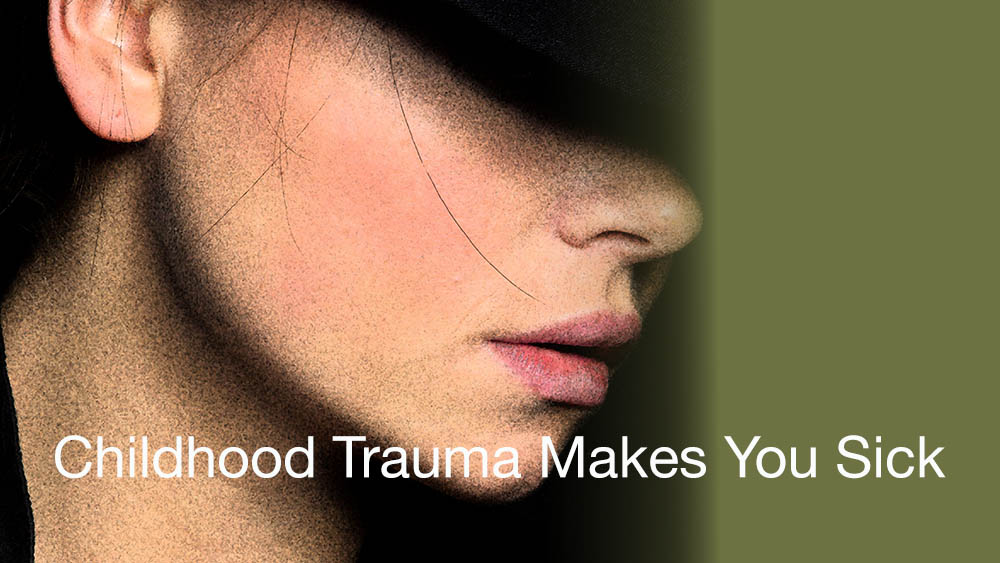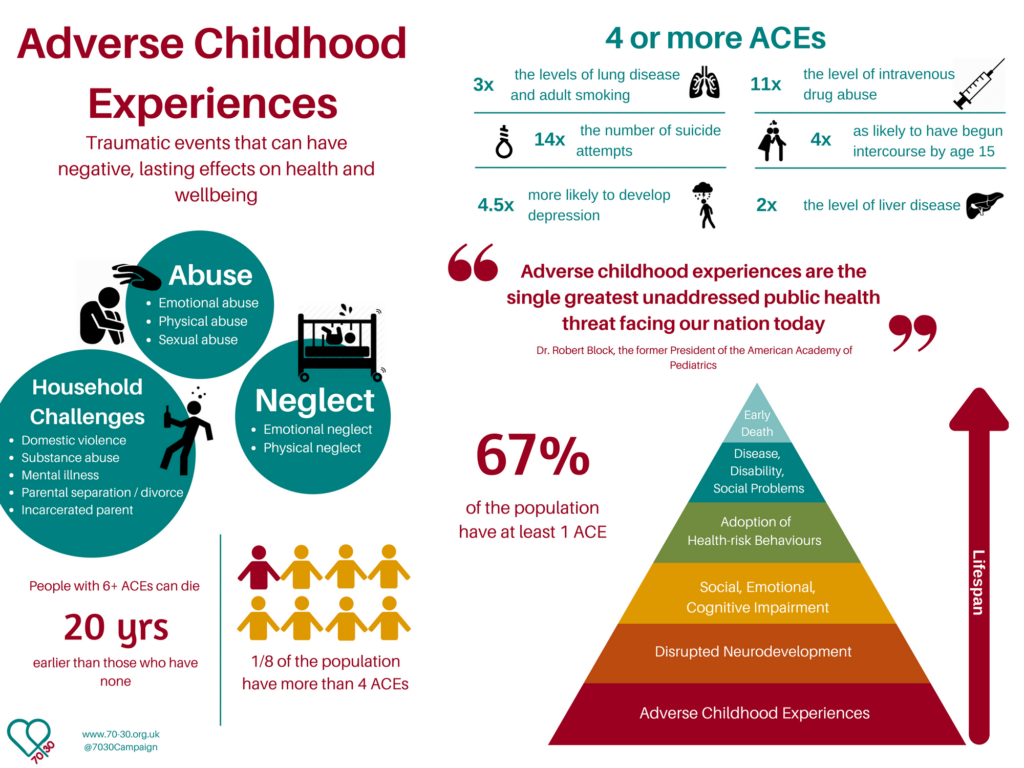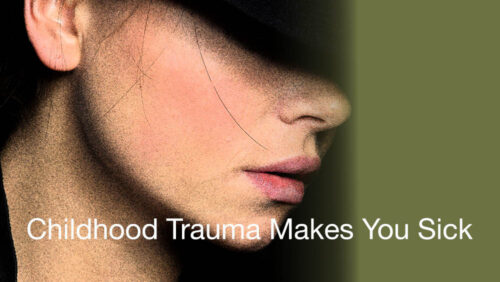
If you don’t know how to say no, your body will say it for you through physical illnesses.
—Dr. Gabor Maté
The long-term effects of ACES
Life experiences in childhood that are lost in time and then further protected by shame and by secrecy and by social taboos against inquiry into certain realms into human experience… those life experiences, play out powerfully and proportionately a half-century later in terms of emotional state, in terms of biomedical disease and life expectancy.
Dr. Vincent Felitti, Kaiser Permanente
The recent headline of the article posted in The Guardian stated: “How childhood stress can knock 20 years off your life.”
Anyone who has experienced childhood abuse and neglect might want to know how it can affect them later on in life. The CDC-Kaiser Permanente Adverse Childhood Experiences Study2 is one of the largest examinations on child abuse and neglect. It was a study on 17,500 middle-class adults.
What are ACEs?
Adverse Childhood Experiences (ACEs) are traumatic or stressful events that occur during childhood. These experiences can range from physical or emotional abuse, neglect, household dysfunction, or exposure to violence.
ACEs can have a lasting impact on a person’s life, including their physical and mental health, behavior, and overall well-being.
According to this study by the Centers for Disease Control and Prevention (CDC) and Kaiser Permanente, nearly two-thirds of adults in the United States have experienced at least one ACE, and more than one in five have experienced three or more. The study also found that the more ACEs a person experiences, the higher their risk for negative health outcomes, including chronic diseases, mental illness, and substance abuse.
Dr. Vincent Felitti, one of the co-principal investigators of the ACE study, stated, “What we have learned is that childhood adversity is not a one-and-done phenomenon. It is cumulative and affects multiple systems.” The ACE study has led to further research on the impact of childhood trauma on a person’s life.
Dr. Nadine Burke Harris, a pediatrician and founder of the Center for Youth Wellness, has been a leading voice in this field.
Dr. Burke Harris has conducted her own research on ACEs and has found that they can have a direct impact on a child’s developing brain. In a TED Talk, she explains, “Toxic stress damages developing brain architecture and leads to lifelong problems in learning, behavior, and physical and mental health.”
ACEs can also have a direct impact on a person’s physical health. Dr. Robert Anda, another co-principal investigator of the ACE study, states, “Adverse childhood experiences are the single greatest unaddressed public health threat facing our nation today. The damage they do to health is profound.”
Research has shown that ACEs can increase a person’s risk for chronic diseases, including heart disease, cancer, and diabetes. In fact, a study published in the American Journal of Preventive Medicine found that individuals with four or more ACEs were twice as likely to be diagnosed with cancer than those with no ACEs.
ACEs can also have an impact on a person’s mental health. Dr. Felitti explains, “We now know that childhood adversity affects the structure and function of developing brains, altering how children learn, think, and behave.” This can lead to mental health issues, such as depression, anxiety, and post-traumatic stress disorder.
The impact of ACEs is not limited to the individual who experienced them. ACEs can also have a ripple effect on families and communities. Dr. Burke Harris explains, “We know that the toxic stress that results from ACEs can change a child’s behavior and their ability to concentrate, which can impact their ability to learn and ultimately, their ability to earn.”
There are ways to address the impact of ACEs. Dr. Burke Harris has developed a screening tool called the ACEs questionnaire, which can be used to identify children who have experienced traumatic events. She also advocates for a trauma-informed approach to healthcare, education, and social services.
Dr. Felitti explains, “We need to understand that these are not bad people. These are people who have had bad things happen to them.” He advocates for a compassionate approach to addressing the impact of ACEs, stating that “we need to help them understand that these experiences are not their fault, that they are not alone, and that they can get better.”
In conclusion, Adverse Childhood Experiences can have a profound and lasting impact on a person’s life, including their physical and mental health, behavior, and overall well-being. The ACE study has brought this issue to the forefront of public health and has led to further research on the impact of childhood trauma.
It is essential that we address the impact of ACEs through a trauma-informed approach and provide compassionate care to those who have experienced childhood trauma.

The question is: NOT what is wrong with you. The question is, “What happened to you?”
So let’s keep in mind, when we see the long-term effects of childhood trauma, we start to understand why we experience what we do. Some possible risk outcomes are:
Behaviour: Lack of physical exercise; smoking; drug use; alcoholism; and missed work.
Physical and Mental Health: Severe Obesity; Eating Disorders; Diabetes; Depression; Suicide Attempts; STDs; Heart Disease; Cancer; Stroke; COPD; and broken bones.
Complex Trauma, learning difficulties, self-harm and anxiety can also be added to the list.
Below is a 7-minute video by Big Think. PLEASE WATCH IT!
Let’s start educating ourselves. Let’s start to make changes. It’s important for ourselves. It’s important for our children.
Laura Corbeth
References: – Centers for Disease Control and Prevention. (2021). Adverse Childhood Experiences (ACEs).
https://www.cdc.gov/violenceprevention/aces/index.html – Harris, N. B. (2014). How childhood trauma affects health across a lifetime. TEDMED.
https://www.ted.com/talks/nadine_burke_harris_how_childhood_trauma_affects_health_across_a_lifetime#t-15757 – Anda, R. F., Felitti, V. J., Bremner, J. D., Walker, J. D., Whitfield, C., Perry, B. D., Dube, S. R., & Giles, W. H. (2006). The enduring effects of abuse and related adverse experiences in childhood. European Archives of Psychiatry and Clinical Neuroscience, 256(3), 174-186. – Brown, D. W., Anda, R. F., Tiemeier, H., Felitti, V. J., Edwards, V. J., Croft, J. B., & Giles, W. H. (2009). Adverse childhood experiences and the risk of premature mortality. American Journal of Preventive Medicine, 37(5), 389-396.
Did you know that childhood trauma can make you sick?
Tweet


Im interested to learn more.